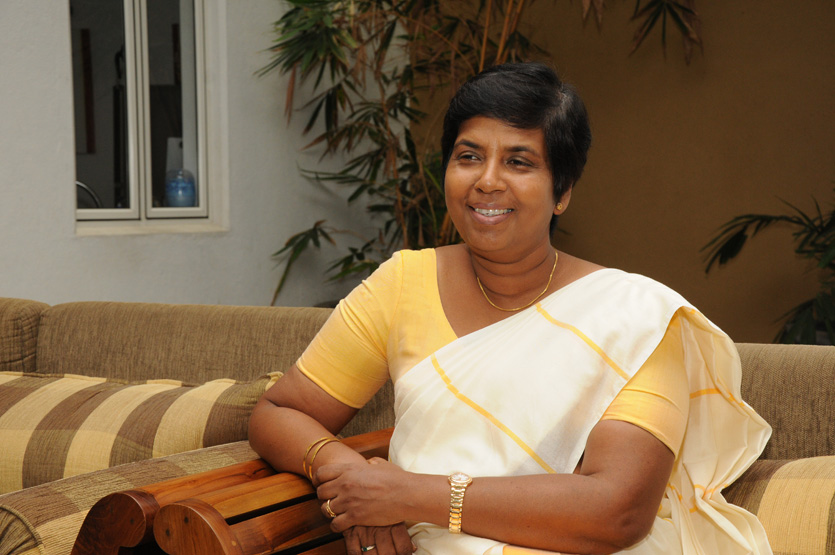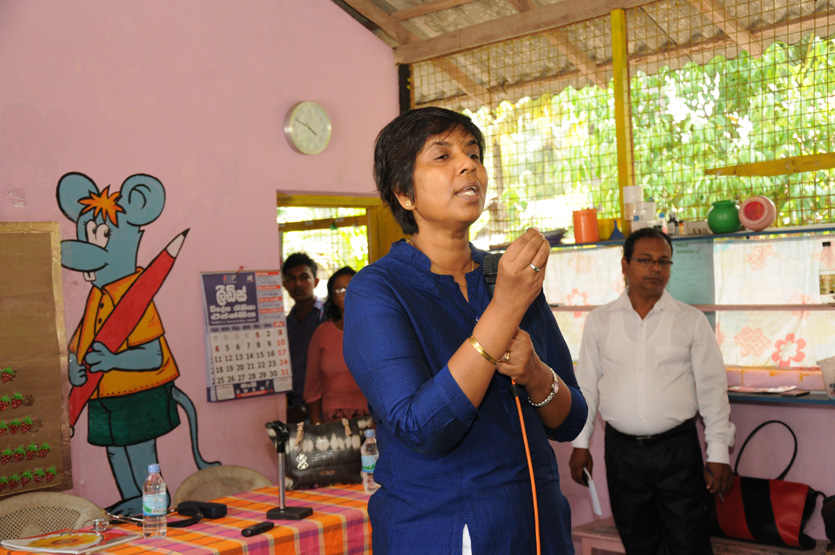Aug 15 2016.
views 1043Ask The Minister: Matters Of Public Interest
A Chat With Sudarshani Fernandopulle, State Minister of City Planning and Water Supply and Deputy Chairperson of Women Parliamentarians’ Caucus
Some of our readers I’m sure, will be very interested in getting to know the progress of the present government and the future plans of the Ministers. With the endeavour of creating awareness in this regard, The Daily Mirror Life met up with some Ministers and asked them a few questions. Their answers will be carried in this weekly column.

How would you describe your role as the State Minister of City Planning and Water Supply when there are so many Authorities, Boards, Departments and Ministries such as the Megapolis and local authorities overlapping each other?
The National Water Supply & Drainage Board and the Community Water Department are the two institutions under the Ministry. When it comes to City Planning we focus on the Provinces other than the Western Province. Previously the UDA was under this Ministry but now it is under the Megapolis. Our main aim is to provide safe water to the population. The institutions that come under the umbrella of this Ministry provides water to 45% of the population. Our aim is to increase it to 60%.
What is the status of sanitation facilities in the country?
When it comes to sanitation facilities, right now only 1.7% have access to the central drainage system where the sewerage is collected centrally. This is mainly in the Colombo municipal areas. About 200,000 people specially in the coastal areas and tea estate sector, Polonnaruwa and many other areas have no access to proper sanitation. Even in my electorate there are 700 people who don’t have toilet facilities. So my aim is to see that this issue is sorted out islandwide.
What exactly does City Planning involve?
For City Planning the government has planned to build about 100 smart cities across the country. They plan to have improved roads, better electricity and telephone facilities etc., in these little cities. We have not implemented this plan as yet.
You were appointed the Deputy Chairperson of Women Parliamentarians’ Caucus (WPC). Can you tell us about this organisation and what it stands for?
This is an organisation of female parliamentarians irrespective of party politics. We try to talk on issues related to women. One of the issues was to increase women’s representation in politics. We joined up with the civil societies to raise awareness on these issues in the last five years and we were able to increase the representation at local government level by 25%. It has to be increased at Provincial as well as National level. We also look at gender based violence and the services available for abused women and implement improvements to the present facilities.

How do you hope to educate women in this regard?
We will be conducting awareness programmes on basic criteria and leadership requirements at district level for ‘would be’ candidates. We will be having these programmes in every district irrespective of party politics. Each party will also have their own programmes.
Where do we stand compared to other countries when it comes to female representation?
Globally and also in the region we are far behind in representation of women. Countries such as India, Nepal, Bangladesh and Afghanistan have overtaken us and women are playing a huge role in decision making not only in politics but in all other spheres as well.
Since you entered politics how has the field changed for women?
Actually we were very happy with this 25% quota. We are hoping that they will introduce this at Provincial and National level also. Now women are being recognised more than before. It is happening gradually. For example, I was appointed as the Vice Chairperson of the Constitutional Council.
Abused women don’t get the required assistance when they go to police stations. What can you do about this situation?
We have a women and children’s desk at police stations but they get the least priority. It’s not easy for a woman to go to a police station if they are in trouble. We want to change this situation and have a separate unit with trained people who will be more empathetic towards women. We are trying to make some changes at policy level, maybe to have a separate division under a DIG.
Even in the Gender and Equity Oversight Committee these same issues are discussed and we are in the process of resolving them.
What in your view is the biggest and most urgent problem facing the country?
I feel that the biggest issue at present is that certain private media organisations are trying to give a negative picture about the government. Facts are distorted and a totally different picture is given. They are creating an unpleasant environment for politicians. This is detrimental as people may rise against their own leaders due to wrong information circulated. Educated people who don’t want to face undue criticism may not want to get into politics.
Even about the VAT, a lot of false information is highlighted by the media. These media organisations don’t highlight the good things that are done by the government such as the good governance and 19th amendment – establishment of independent commissions, right to information bill, curtailing certain powers of the President etc. It will take 10- 15years to see the full scale results but it’s all aimed at good governance.
Since we are on the topic of media, some people are of the view that victims of crime specially children, are made into a media circus. What do you have to say about it?
The conduct of some media organisations are not ethical and have no discipline. They show victims of abuse and their families over and over again. The National Child Protection Authority can take action against them and they can be taken before court. The Gender & Equity committee requested the Child Protection Authority to have a meeting with the press council and request of them to adhere to the rules and regulations and not to allow this type of thing to keep happening. As a result of this kind of publicity it’s difficult to rehabilitate these victims and their families and they are suffering.
If the two political giants in the country find that this system of governing is successful, will you vote to formulate a co-habitation party to better serve the people?
That’s yet to be decided. I see a lot of plus points in this system. We, the two major parties take decisions collectively. And as a result a lot of good things have happened. Otherwise the two parties talk two different languages and the country doesn’t move forward. Now the two parties have got together to wipe out corruption and wastage. For example, even at electoral level the co-chairs of the divisional coordinating committee, the UNP organiser and I, collectively take decisions to solve issues in our electorate. Previously they would criticise whoever is in the ruling party. But now since both of us are making the decision, it will invariably be the right decision. So far we have been successful.
Politics keep on changing so we never know what the future holds. We have to live for the day and do the best for the country.
Did you know?
- She is a Consultant in Public Health.
- She sings a wide range of Sinhala songs from the 60’s and 70’s that appeal to a cross sections of the people.
- She has captained the University teams in Basketball, Netball and Volleyball and been awarded Colours for all three sports.
- She used to participate in both Bakthi Gee as well as Christmas carols at university.
- She is a very family oriented person and her extended family lives with her. Her sister is married to her husband’s brother.
Questions for the Ministers can be emailed to [email protected].
0 Comments